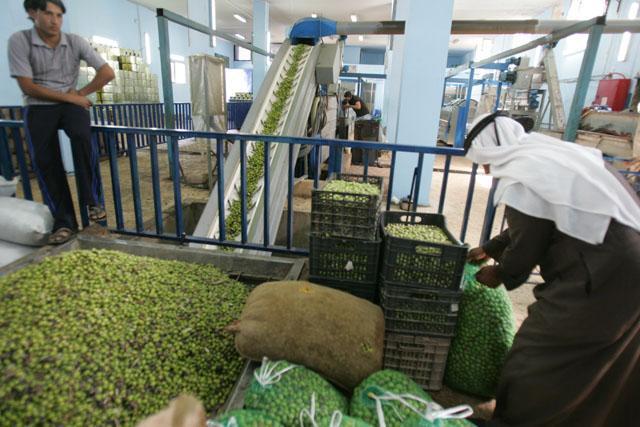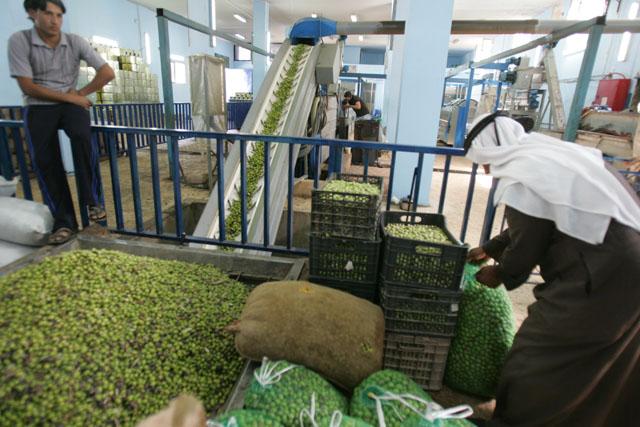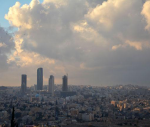You are here
Experts warn of dangerous effects of olive mill waste
By Mays Ibrahim Mustafa - Jan 29,2022 - Last updated at Jan 29,2022

A view of an olive mill. Olive pomace, locally known as ‘jift’, is a solid residue generated by the mills that press olives for oil (File photo)
AMMAN — As the olive-milling season in Jordan comes to an end, experts warn against the dangerous effects of the waste it generates and call for more sustainable solutions.
This season, olive mills in Jordan yielded roughly 25,000 tonnes of olive oil and 50,000 tonnes of olive pomace, said Olive Oil Producer and Mill Owner Syndicate Spokesperson Mahmoud Al Omari.
Olive pomace, locally known as “jift”, is a solid residue generated by the mills that press olives for oil.
North Jordan has 70 per cent of the Kingdom’s 138 olive mills and generates the largest amount of olive pomace, according to the Olive Directorate.
“This by-product presents a yearly challenge for mill owners,” Omari told The Jordan Times, noting that there are no designated areas to dispose of the olive pomace and no laws or legislation licensing factories to process and recycle it.
Most olive mill owners resort to using it as a side investment which provides one thousand seasonal job opportunities, according to Omari.
“After leaving the olive pomace to dry for no less than two months, it is pressed into cylinder moulds and sold to locals,” he said.
Many Jordanians in rural areas rely on it as a cheaper alternative to petroleum fuels to keep their homes warm during winter.
Twenty-three-year-old Omar Alsardi from Mafraq, a governorate roughly 80 kilometres north of Amman, said that his family has been using olive pomace for heating since he was a child.
“It’s very cheap and we buy tonnes of it every season,” Alsardi told The Jordan Times.
One tonne of olive pomace costs around JD60 to JD80, according to locals. Omari also noted that some mills rely on it to heat the water used in production lines.
Despite the economic and environmental benefits of using olive pomace as a source for heating, this isn’t an “ideal” solution.
“All forms of burning are bad for the environment,” environmental expert Hala Murad told The Jordan Times. She added that although using the pomace as a heating source is better than disposing of it as it is, “we can still do better”.
“Properly recycling it into composts and fodder or using it to produce methane gas is a much more sustainable solution,” she said, adding that “burning” should be our last resort as “it makes pollutants more polluting”.
Murad also noted that olive pomace contains highly concentrated acids and organic compounds that can have poisonous effects if not properly treated.
Ehab Eid, another environmental expert, shared Murad’s view, telling The Jordan Times that “using it as compost offers an alternative for chemical fertilisers which harm the soil’s sustainability and pollute underground water”.
Pressing olives also produces a stream of wastewater, locally known as “zibar”, posing an environmental threat and a major source of odour that disturbs locals.
“Olive mills move the ‘zibar’ into designated dumping sites, which then store it without treatment,” Omari told The Jordan Times.
Improper disposal of this wastewater endangers Jordan’s underground water resources, noted Murad.
An investigation is underway to find a way to reduce the harmful environmental impacts of olive oil production.
Director of the Olive Directorate Osama Qattan told The Jordan Times: “We’re currently working with the Ministry of Environment and research bodies to find economically and environmentally viable ways to deal with the wastewater in a manner that would allow us to reuse it”.
In a statement to The Jordan Times, the Ministry of the Environment’s spokesperson Ahmad Obeidat said that the ministry is studying the possibility of treating the ‘zibar’ for irrigation purposes.
Related Articles
AMMAN — The Olive Oil Producer and Mill Owner Syndicate indicated on Thursday that as the current olive season progresses, there have
Although Jordan ranks as the eighth largest olive oil producing country in the world, it still lacks proper facilities for the treatment of zibar, an oily waste generated during the olive oil extraction process, according to a study.
AMMAN — Agriculture Minister Rida Khawaldeh and Environment Minister Yaseen Khayyat on Sunday discussed proposed solutions to the envi















